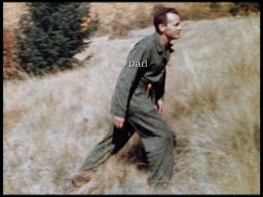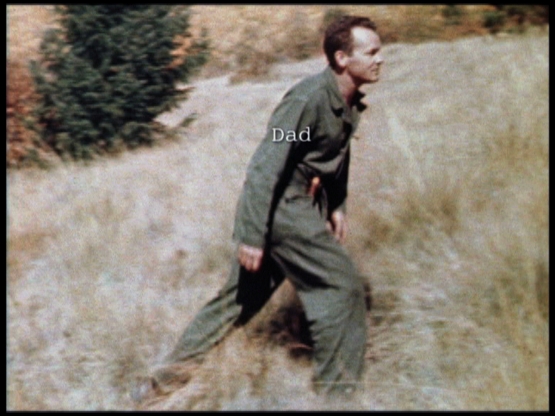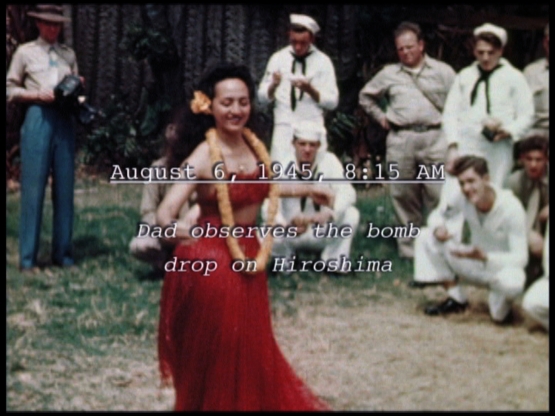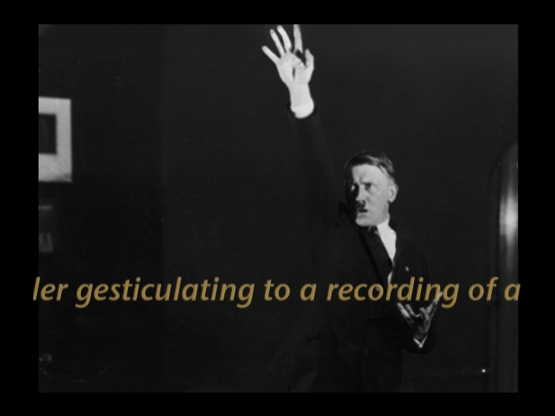The five films that form part of Leslie Thornton’s series Let Me Count The Ways – presented this year at Festival Temps d’Images at MNAC-MC – constitute an ongoing and always unfinished inquiry into violence and, more broadly, the history of human behaviour. Completed in 2004, a year after the US invasion of Iraq, the artist works on memory and the past as mechanisms for re-evaluating the present.
As a working model, the artist has been using series of films focusing on a specific theme, which, despite never reaching completion, affirm the complicity shared between the idea and her creative process. Her works reveal an approximation with the very body of history and its contradictions and complicities.
In the work Let Me Count the Ways Minus 10, 9, 8, 7, the artist examines the historic moment of the launching of the atomic bomb in Hiroshima – evoked in the countdown of the title itself – using found footage, original film reels, historical data, testimonies and text. In four episodes, personal memories and historical testimonies on the collateral effects of the bomb and the ensuing Cold War are evoked.
Let Me Count The Ways 10 is a home movie shot in the vicinity of Los Alamos, the city where the filmmaker’s father, a nuclear physicist, was involved in the project to make the first atomic bombs. The film is juxtaposed with military footage and an interview with a survivor (hibakusha) of the nuclear attack. The personal and military film footage is linked by the word “Dad”, placing Thornton’s family’s past at the heart of an historical tragedy and trauma.
Minus 9 presents a poetic narrative in which testimony is intercut by the representation of an element that suggests mutation. Minus 8 and 7 present excerpts of a documentary entitled “The Growth of Plants”, which are interrupted by a text describing the genetic and botanical mutations caused by radiation.
Finally, in Minus 6, famous images of Hitler practising his theatrical speechmaking gestures in a studio – shot in 1927 by his official photographer Heinrich Hoffmann – are set against excerpts from a speech by the leader of the Nazi Party, Herman Göring, in which he gives voice to his political extremism.













